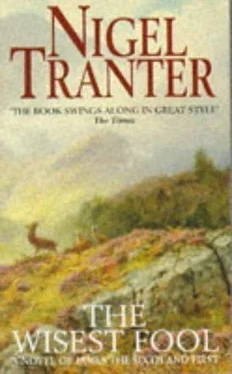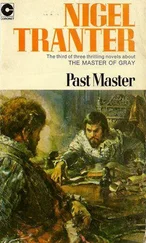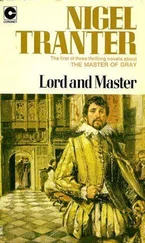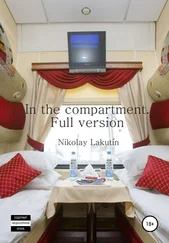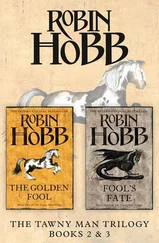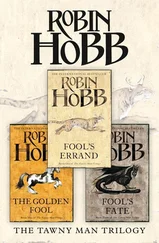Nigel Tranter - The Wisest Fool
Здесь есть возможность читать онлайн «Nigel Tranter - The Wisest Fool» весь текст электронной книги совершенно бесплатно (целиком полную версию без сокращений). В некоторых случаях можно слушать аудио, скачать через торрент в формате fb2 и присутствует краткое содержание. Жанр: Исторические приключения, на английском языке. Описание произведения, (предисловие) а так же отзывы посетителей доступны на портале библиотеки ЛибКат.
- Название:The Wisest Fool
- Автор:
- Жанр:
- Год:неизвестен
- ISBN:нет данных
- Рейтинг книги:4 / 5. Голосов: 1
-
Избранное:Добавить в избранное
- Отзывы:
-
Ваша оценка:
- 80
- 1
- 2
- 3
- 4
- 5
The Wisest Fool: краткое содержание, описание и аннотация
Предлагаем к чтению аннотацию, описание, краткое содержание или предисловие (зависит от того, что написал сам автор книги «The Wisest Fool»). Если вы не нашли необходимую информацию о книге — напишите в комментариях, мы постараемся отыскать её.
The Wisest Fool — читать онлайн бесплатно полную книгу (весь текст) целиком
Ниже представлен текст книги, разбитый по страницам. Система сохранения места последней прочитанной страницы, позволяет с удобством читать онлайн бесплатно книгу «The Wisest Fool», без необходимости каждый раз заново искать на чём Вы остановились. Поставьте закладку, и сможете в любой момент перейти на страницу, на которой закончили чтение.
Интервал:
Закладка:
Nigel Tranter
The Wisest Fool
PART ONE
1
THE THUNDER OF the cannon from Berwick's castle and walls stopped abruptly-presumably these having run out of powder after nearly two hours of gleeful banging such as the old grey town had not heard since Edward Longshanks' days. In the sudden hush, the chatter of hundreds of tongues, necessarily unpraised previously to counter the din, as hurriedly dropped away, abashed, and only the wailing of the gulls, wheeling everlastingly above the Tweed's estuary, sounded over all the brilliant and colourful throng.
Men and women might stare, even though chatter would probably be considered unseemly-and certain unseemlinesses were frowned upon in no uncertain fashion, though others were not; one could never be quite sure, majesty being an unpredictable quantity and quality. Stare the great company did, then, with varying expressions-and to the keen eye it could have been noteworthy that the variations might be classed under two main heads, the amused and the shaken. Moreover, these categories themselves could be allotted to the two constituent groups, almost exactly. The Scots mainly tittered, and the English looked astonished, alarmed, even appalled. It was as simple as that, on the Spittal shore of Tweed, at the southern end of Berwick Bridge.
One Scot there, watching, neither tittered nor looked shaken, however. A man in his late thirties, dressed richly but not with the extravagance of padding, clashing colour and ornamentation which was prevalent around him, he was stockily built, sandy-haired, with no very distinguished features but shrewd alert eyes which missed nothing, a quietly watching, assessing, steady man whose expression was nevertheless redeemed from anything of stern self-interest by the upturning corners of a firm mouth above a small beard, which hinted at humour never far away. George Heriot was apt to see the amusing side of life, without necessarily bursting into laughter over it all, and sought not to be mocking about it-difficult as this frequently was in his circumstances. But he did not smile now, whatever the attitude of most of his compatriots present, for his sympathies were engaged, strangely enough.
Not that the scene lacked anything to make a cat laugh. To see a knock-kneed, over-dressed, slobbering little man down on the said knees kissing the beaten ground amongst the horse-droppings at the bridge-end, and mumbling wetly, high beribboned hat tipped forward over his nose, was a sight seldom to be seen. And when the individual so engaged was Christ's Vicar here on earth -or so he confidently asserted-the Lord's Anointed, James, by the grace of God King, not only of Scots but, since exactly two weeks previously, of England also, the first ever so to be, the thing became the more extraordinary. What added to the general Scots appreciation, of course, was the evident upset and confusion of the English notables most close to the monarch, who, unused to the ways of their new liege lord, did not know whether to get down on the earth with him, pray with him-if that was what he was doing-seek to raise him up, look the other way, or merely wring their hands and look unhappy. When the King stands, all men stand-in England certainly, and presumably in Scotland also. And they were in England now-just. But did it also apply to kneeling, kissing and mumbling? The Earl of Northumberland, representing the Privy Council and both Houses of Parliament, looked at the Bishop of Durham, representing the Archbishops of Canterbury and York before the new Head of the Church of England, but got no help there, and turned to his brother, Sir Charles Percy, who had been escorting their sovereign lord all the way from Edinburgh and ought to know the form. Sir Charles spread his delicate hands helplessly, looking pained in dignified fashion. He had been a courtier of Elizabeth's for thirty years, and never had had to face a problem such as this before.
George Heriot still did not smile, but he scratched his small beard in anticipation.
James Stewart solved the problem in his own way. As abruptly as he had collapsed on his spindly, knobbly knees when he had tottered off the bridge, he stopped his prayers and praise for safe delivery, tipped his very odd and high hat to the back of his head, to look up and around him. And those great lachrymose but lustrous eyes, possibly the only inheritance he had, other than a kingdom, from his beauteous mother Mary Queen of Scots, were searching and shrewd as Heriot's own. The Wisest Fool in Christendom missed little of what went on around him.
"Man-have me up, can you no'?" he demanded, at Northumberland. "Standing there gawping like a great gowk! Aye, and you, my lord Bishop-what way's that to bide? Have you no' a word o' thanks to your Maker for winning us ower this Jordan?"
Even as Earl and Bishop burst into comprehensive apology for any seeming neglect, either of their liege lord or their Maker, a score of eager hands hastened to raise Majesty to its feet, each jostling all others in the process.
A voice spoke quietly at Heriot's shoulder. "I swear I am sorry for these English, Master Heriot-tears that I had never thought to shed!" That was Ludovick Stewart, Duke of Lennox, at present the only duke in two kingdoms, the King's far-out cousin and intermittent friend if not favourite. "Their education commences, I think!"
The other shrugged slightly. "Ours also, perhaps, my lord Duke. Who knows? There is change in the air." "Change, aye. But… for the better?"
"We must make it so. If we can. And we at least have this advantage-His Grace will not change, whatever else may!"
King James had turned round to face the bridge again, and was pointing, arm and finger still trembling from his alarm and emotion. He spoke thickly-always he spoke thickly, wetly, for his tongue was too large for his mouth and the spittle ran constantly down his straggly beard, as adequate an excuse for a permanent thirst as might be devised. To steady himself, he grabbed Sir Charles Percy's richly padded sleeve, with the other hand.
"Yon's a right shameful brig," he declared. "Your brother, this Northumberland, should have done better, for me, man It's no' right and proper, I tell you. I… we are much disappointed. Yon's a disgrace. We might have been submerged in the cruel waters- aye, submerged. It wabbles, sirs-it quakes. It'll no' do, I say."
"To be sure, Sire. As Your Majesty says. But I assure Your Majesty that it is safe. Entirely safe." Northumberland, still clutching the as yet undelivered address of welcome from the Privy Council in London, was earnestly placatory. "It has always been thus. I have ridden across it a hundred times…"
"It shoogles, sir-it shoogles. And creaks. Are you contesting my royal word, Englishman?" "No, Sire-no! I swear! But… but…"
The Bishop gallantly, if rashly, came to the rescue. "Your Majesty, old wooden bridges do creak. In especial long ones. And, er, quiver somewhat But it has survived a thousand storms…"
"Each more weakening it, man-weakening it Guidsakes, you came here, to bide this side, waiting on me, me your prince, to take his life in his two hands, and cross yon death-trap to you! What like a people and nation is this I've come amongst?"
"But, Highness-this is the English side. Where it was our duty, our joyful duty, to wait and greet you. On setting your royal foot on our, h'm, on your English soil. For the first time. Berwick Bridge, therefore, is only half in this realm of England. Your Majesty will not hold us responsible for, for the Scots end…?"
"Na, na, mannie-you'll no' win awa' with that sort o' talk, see you. Yon ill Richard Plantagenet stole Berwick from us lang-syne; 1427 to be precise-aye, 1427, nigh on two centuries past You've sat snug in our Berwick since then, have you no'? Complain as we would. North o' the brig. So you'll no can jouk your responsibilities. Incidis in Scyllam cupiens vitarc Charybdim. You, a churchman, will ken what that means?"
Читать дальшеИнтервал:
Закладка:
Похожие книги на «The Wisest Fool»
Представляем Вашему вниманию похожие книги на «The Wisest Fool» списком для выбора. Мы отобрали схожую по названию и смыслу литературу в надежде предоставить читателям больше вариантов отыскать новые, интересные, ещё непрочитанные произведения.
Обсуждение, отзывы о книге «The Wisest Fool» и просто собственные мнения читателей. Оставьте ваши комментарии, напишите, что Вы думаете о произведении, его смысле или главных героях. Укажите что конкретно понравилось, а что нет, и почему Вы так считаете.
